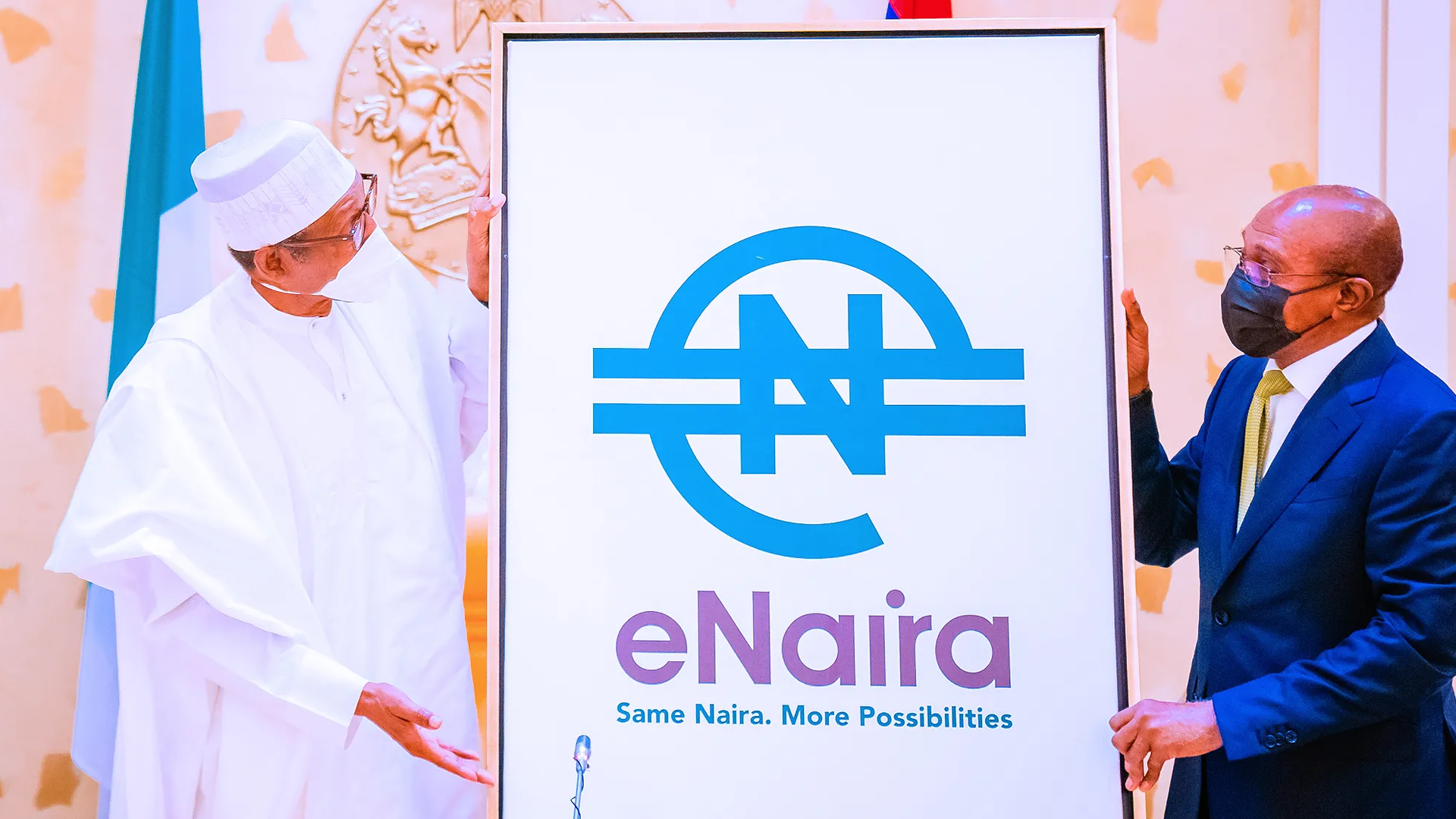Nigeria, Africa’s economic powerhouse, has just rolled out its digital eNaira currency, the first of its kind for the region.
On Monday, Nigerian president Muhammadu Buhari launched a new digitized model of the Naira currency, known as the eNaira.
This launch comes shortly after Nigeria became the second largest country to trade in peer-to-peer Bitcoin after the US, and after Central Bank banned financial institutions from dealing with local cryptocurrency in February.
Young people in Nigeria make up more than 65% of cryptocurrency trades, and often use it to avoid the weakening national currency, Naira, which has majorly dropped against the dollar in recent years.
With a population of over 210 million people, there is a plenty of potential for eNaira to become a mainstream, long-term digital trading option, particularly for Gen Z and young finance enthusiasts.
During the launch, Buhari noted that eNaira could boost economic growth and increase the country’s GDP by $29 billion in the next 10 years, as well as increase the tax base.
‘The Central Bank Digital Currency can help increase remittances, foster a cross-border trade, improve financial inclusion, make monetary policy more effective, and enable the government to send direct payments to citizens eligible for specific welfare programmers,’ he said.
According to the Central Bank, eNaira users can gain access via the App Store or the Google Play Store, and can send money to their mobile wallets from their bank accounts.




















